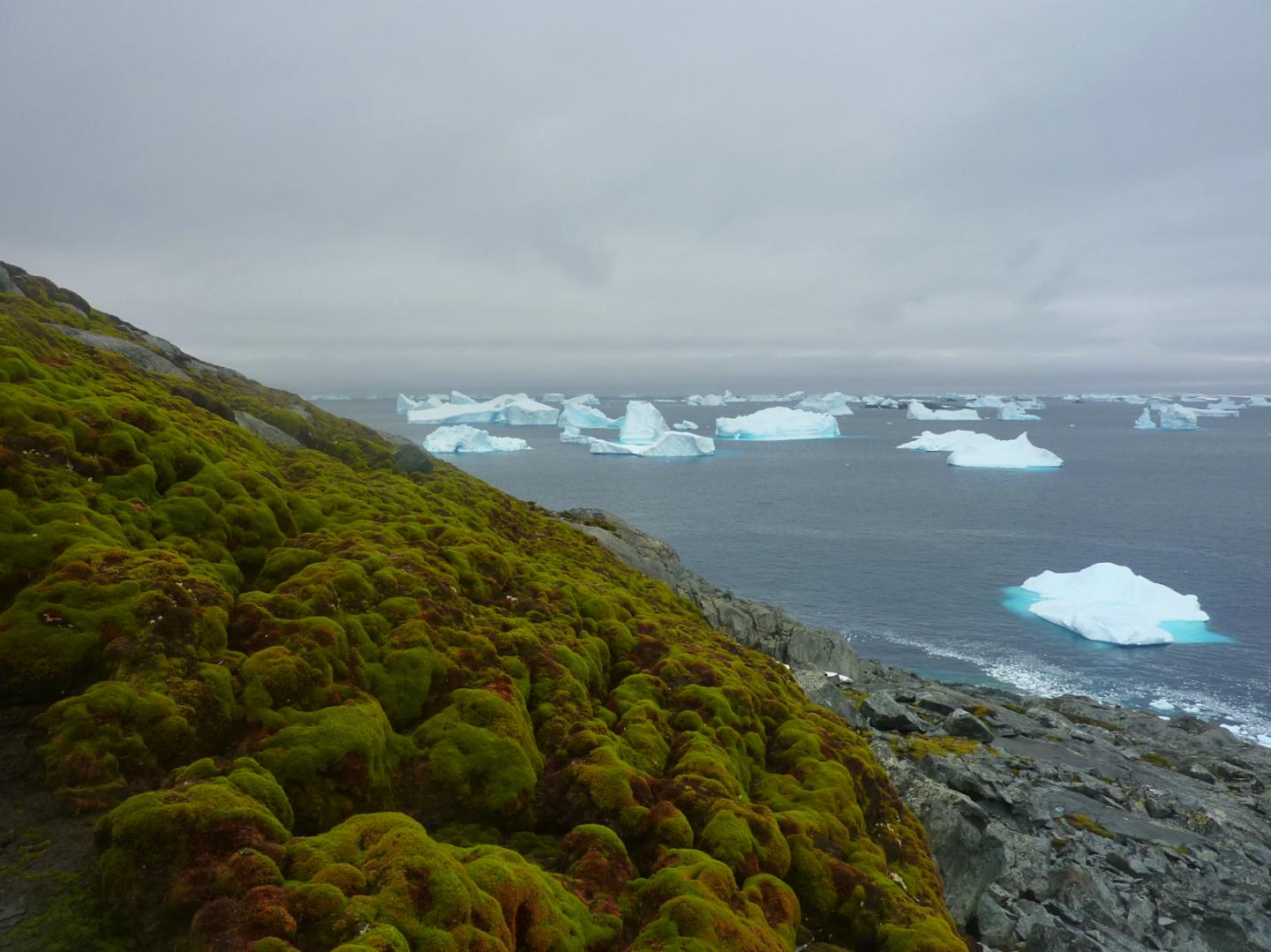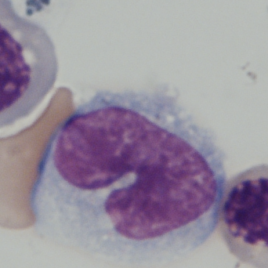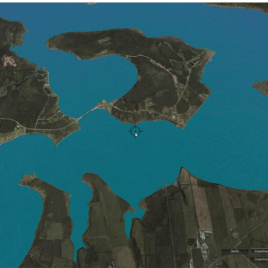
This photograph shows a close-up of the hummocky terrain of a moss bank surface, Green Island. (Image by Matt Amesbury)
Moss from additional sites on the Antarctic Peninsula has allowed scientists to get a clear picture of the ecological changes the region underwent over the past 50 years. A new study builds on previous research from 2013, where scientists studied mosses and microbes growing at the southern end of the Antarctic Peninsula. In the recent study, researchers added three sites and five cores to their earlier sample, including three Antarctic islands: Elephant Island, Ardley Island, and Green Island, which contain some of the oldest moss banks in the region. Analysis of these new samples revealed increased biological activity as the temperatures in the regions have risen in the past 50 years. Study authors say that the sensitivity of mosses’ rate of growth in response to past temperature increases suggests that the Antarctic terrestrial ecosystems will continue to experience rapid change with future warming.
Authors:
Matthew J. Amesbury, Thomas P. Roland, Jessica Royles, Dominic A. Hodgson, Peter Convey, Howard Griffiths, Dan J. Charman
Corresponding author:
Matthew Amesbury, University of Exeter, Email: m.j.amesbury@exeter.ac.uk
Original paper published in Current Biology on May 18, 2017.


